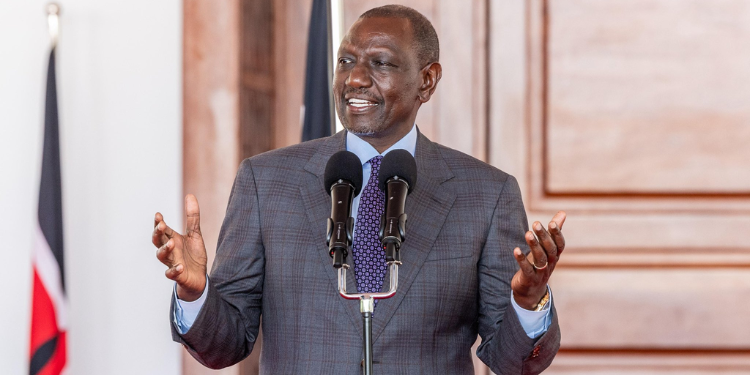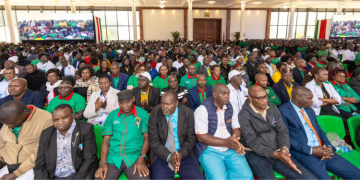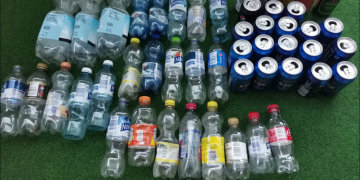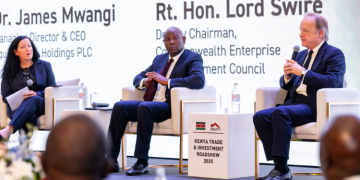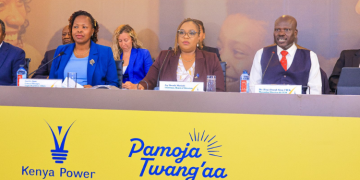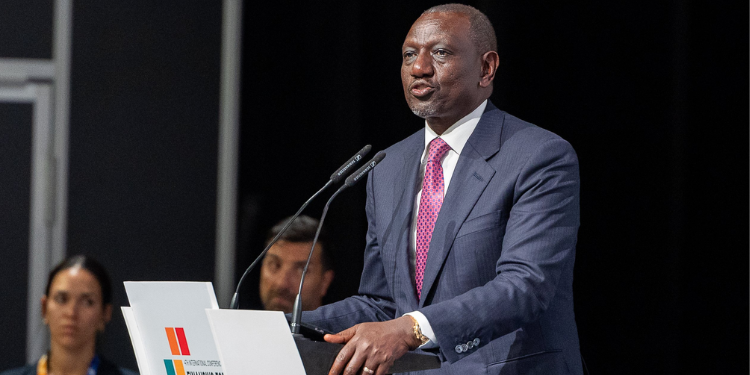When President William Ruto assented to the Kenya Finance and Appropriation Bills on June 26, 2025, he unlocked a record Ksh4.24 trillion budget for the fiscal year 2025/26.
While Treasury framed the move as a pragmatic step toward fiscal discipline, Kenya’s National Taxpayers Association (NTA) voiced deep concern.
In a sharp critique, the NTA condemned the Finance Bill 2025 as “regressive, opaque, and socially unjust,” warning that it would deepen inequality and burden low-income Kenyans with increased consumption costs while offering few protections in return.
The NTA’s Alarm Bell: “The Budget Betrays the Poor”
The National Taxpayers Association, a leading civic watchdog on public finance, has emerged as a key voice in opposition to the 2025/26 budget.
In a detailed public statement, the NTA accused the government of “prioritizing revenue targets at the expense of social justice,” and warned that Kenya’s most vulnerable citizens would bear the brunt of rising taxes on basic goods and services.
Their analysis pointed to widespread regressivity in the tax structure, especially the expansion of VAT and excise duties on everyday essentials and informal sector activities.
“The Finance Bill widens inequality by taxing consumption more than income or wealth. It punishes those who have the least voice in the process,” the NTA declared.
Expert Insight: Budgeting Without a Safety Net
Dr. Stella Wekesa, a respected independent finance and budget expert, echoed these concerns.
In an interview on the post-budget landscape, she criticized both the tax structure and the spending priorities:
“This budget tightens revenue enforcement while weakening public safety nets. Indirect taxes are growing faster than incomes, and the state is retreating from key social protections. That is neither sustainable nor equitable,” she said.
Dr. Wekesa highlighted the government’s removal of zero-rating for clean energy components, the imposition of excise on digital lending, and the reduced support for programs like school feeding and maternal health moves she described as a “betrayal of the progressive spirit of the Constitution.”
Taxing Essentials: The Burden of Survival
The Finance Bill 2025 sidesteps major new taxes but quietly expands existing ones in a way that hits the poor hardest. Key measures include:
-
VAT on solar panels, medical inputs, animal feeds, and affordable housing materials—shifting formerly zero-rated goods to exempt status, which prevents producers from reclaiming input VAT and raises final prices.
-
Excise tax on digital lending platforms, curbing access to affordable, tech-driven credit for low-income borrowers.
-
Withholding tax on scrap metal sales, which impacts informal workers who lack the capacity to comply.
-
A cap on loss carry-forwards at five years, discouraging long-term capital investment.
According to the NTA and experts like Dr. Wekesa, these moves undercut inclusive development goals and contradict constitutional mandates for fair taxation.
Spending Priorities: Development for Whom?
While the Appropriation Act 2025 authorizes large allocations KSh 1.8 trillion from the Consolidated Fund and KSh 671 billion in Appropriations-in-Aid (A‑in‑A) the NTA flagged critical omissions in key social sectors:
-
School feeding programs have seen budget reductions.
-
Linda Mama, the free maternal health initiative, was left unfunded.
-
Youth and vocational training (TVET) allocations remain insufficient amid high youth unemployment.
“There is a disconnect between stated priorities and actual spending,” the NTA said. “This budget invests in infrastructure but disinvests in people.”
Dr. Wekesa added, “Social development cannot be an afterthought in a society where inequality is already extreme. Investment in people must match physical development.”
Progressivity: A Missing Link
A progressive tax system requires the wealthy to contribute more than the poor—not just in absolute terms, but relative to their income and wealth. Yet Kenya’s tax strategy remains heavily reliant on:
-
Indirect taxes like VAT and excise, which affect low-income households disproportionately.
-
Minimal increases in personal income tax brackets.
-
No new wealth taxes or reforms on property and capital gains.
While the global minimum tax on multinationals and the Significant Economic Presence Tax for digital companies is welcome, their benefits are limited to large, often foreign players offering little reprieve to ordinary Kenyans.
“Kenya’s tax system needs to shift from taxing consumption to taxing capacity,” Dr. Wekesa said. “That means income, wealth, and land not bread, fuel, and medicine.”
Accountability Deficit: A Budget Without Consent?
The NTA also raised alarms over the lack of transparency and public participation in the Finance Bill process. Despite over 1,600 public submissions, including their own, most suggestions were ignored with no explanation.
Also Read: Budget Cuts Threaten to Cripple Delivery in Key Govt Departments
Additionally, the KSh 671 billion in A-in-A revenue, generated by ministries and agencies, remains outside strong oversight structures posing risks of misallocation, wastage, and corruption.
“Budgets must not only be lawful they must be just and participatory,” the NTA said, calling for an audit of A-in-A use and stronger public reporting.
The Alternative: A Pro-Poor Fiscal Strategy
The NTA and Dr. Wekesa propose a framework for realignment:
Revenue reforms:
-
Reinstate zero-rating for essential goods
-
Introduce wealth and luxury asset taxes
-
Enforce high-income tax compliance
Expenditure reforms:
-
Reprioritize social protection and public health
-
Establish a citizens’ oversight portal for A-in-A spending
-
Guarantee regional equity in infrastructure allocation
“A fair tax system is one where everyone pays, but not everyone pays the same. Kenya has the data, institutions, and civil voice to make this shift if political will follows,” Dr. Wekesa concluded.
A Budget for the Many, Not the Few?
The 2025/26 budget may balance the books, but it threatens to unbalance society. With tax policies that burden low-income households and budget allocations that sideline essential services, the promise of equitable growth is in peril.
Also Read: Education Leading in 2025/26 Budget Sector Gains
Thanks to sustained advocacy by the National Taxpayers Association and independent experts like Dr. Stella Wekesa, these issues are no longer invisible. The question now is whether government and Parliament will listen or whether Kenya’s budgeting process remains a top-down affair that taxes survival and spares privilege.
In a democracy, the budget is not just a financial document. It is a moral contract. And in 2025/26, that contract is being contested.
Follow our WhatsApp Channel and X Account for real-time news updates.
